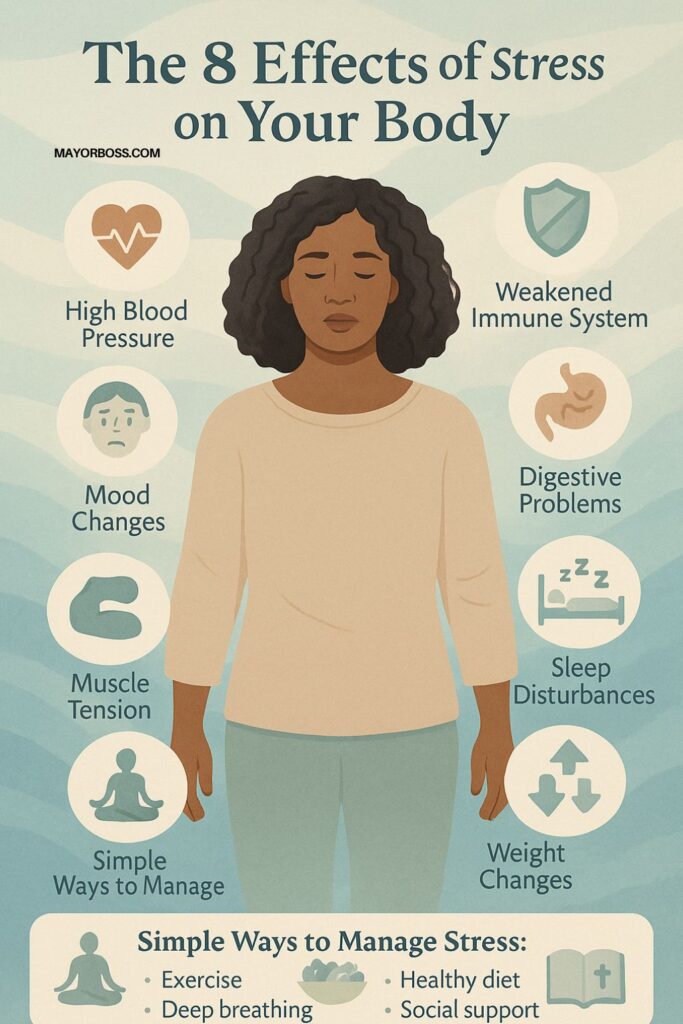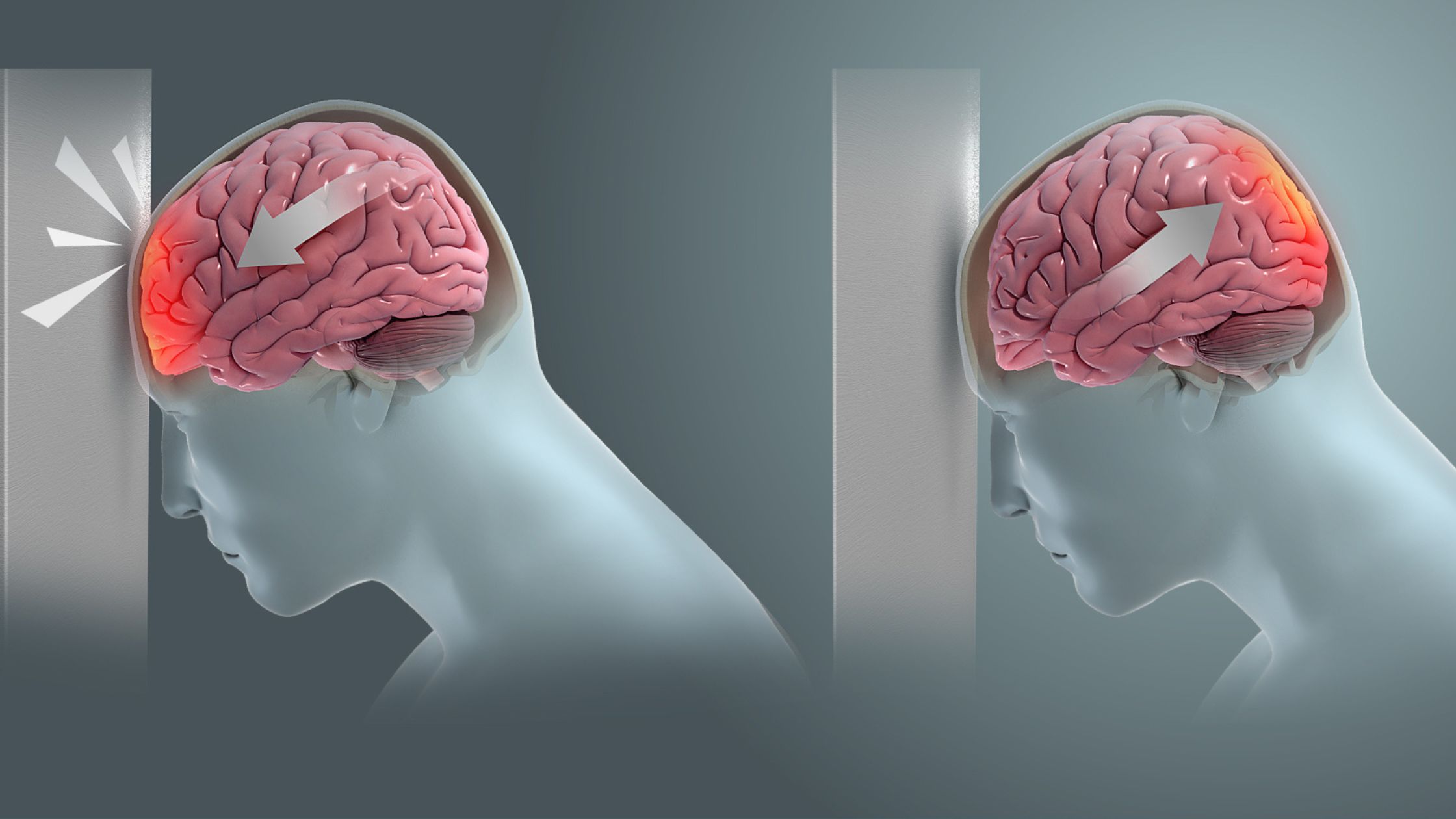The 8 Effects of Stress on Your Body
Stress affects your body in many ways. It can cause headaches, raise your blood pressure, weaken your immune system, upset your stomach, cause muscle tension, disrupt your sleep, affect your mood, and even harm your heart. Learning to manage stress is essential for protecting your health and well-being.

Have you ever wondered why you get headaches, stomach pain, or feel tired when life gets stressful? You are not alone. Stress touches everyone at some point. Sometimes, it comes in quietly. Other times, it feels overwhelming. No matter how it shows up, stress can change how your body works.
1. Headaches
Many people notice headaches during stressful times. Stress can tighten the muscles in your neck, face, and scalp. This tension can cause dull, constant pain or sharp headaches. For some, stress triggers migraines, which bring more intense pain, nausea, and even vision changes.
2. High Blood Pressure
When you are under stress, your body releases stress hormones like cortisol and adrenaline. These hormones make your heart beat faster and your blood vessels tighten. Over time, this can lead to high blood pressure. High blood pressure increases your chance of a heart attack and stroke.
3. Weakened Immune System
Stress makes it harder for your body to fight off illness. When you are stressed, your immune system does not work as well. You might catch colds more often, take longer to recover from sickness, or have more flare-ups of chronic conditions like asthma or eczema.
4. Upset Stomach
Your stomach and intestines respond quickly to stress. Stress can make you feel nauseous, cause stomach pain, or lead to diarrhea or constipation. Some people get acid reflux or indigestion. Others lose their appetite or eat more than usual when stressed.
5. Muscle Tension and Pain
Have you ever felt your shoulders tighten up when you are anxious? Stress makes your muscles tense. Over time, this can cause muscle pain, stiffness, and even backaches. Chronic muscle tension can make it hard to relax or get comfortable.
6. Sleep Problems
When stress keeps your mind busy, it can be hard to fall asleep or stay asleep. You might toss and turn, wake up too early, or feel tired even after sleeping. Poor sleep makes stress feel worse, creating a cycle that is hard to break.
7. Mood Changes
Stress affects your mind as much as your body. It can make you feel anxious, irritable, or sad. Some people feel angry or lose interest in things they usually enjoy. Over time, chronic stress may lead to depression or anxiety disorders, according to studies.
8. Heart Health
Long-term stress is hard on your heart. It raises your blood pressure, increases your heart rate, and can make your blood vessels inflamed. This increases the chance of heart disease, heart attack, and stroke. Stress also raises the risk of unhealthy habits, like overeating or smoking, which further harm your heart.

How to Manage Stress
Here are a few proven ways to reduce stress:
- Get regular exercise, even a short walk
- Practice deep breathing or meditation
- Talk to a friend or counselor
- Set aside time for hobbies and relaxation
- Get enough sleep
- Eat a healthy, balanced diet
If stress feels overwhelming or never goes away, talk to your doctor or a licensed psychologist. Sometimes, you need extra help to find balance and protect your health.
FAQs
1. Can stress cause physical illness?
Yes, stress can weaken your immune system, making it easier to get sick or have flare-ups of chronic conditions.
2. How does stress affect your heart?
Long-term stress raises your blood pressure and heart rate, which increases the risk of heart disease and stroke.
3. What are some quick ways to relieve stress?
Try deep breathing, stretching, taking a walk, or talking to a friend.
4. Can stress make sleep problems worse?
Yes, stress often makes it harder to fall asleep or stay asleep, leading to fatigue and more stress the next day.
5. When should I see a doctor about stress?
If stress is constant, feels overwhelming, or causes health problems that do not get better, talk to your doctor or a licensed psychologist for support and treatment.






